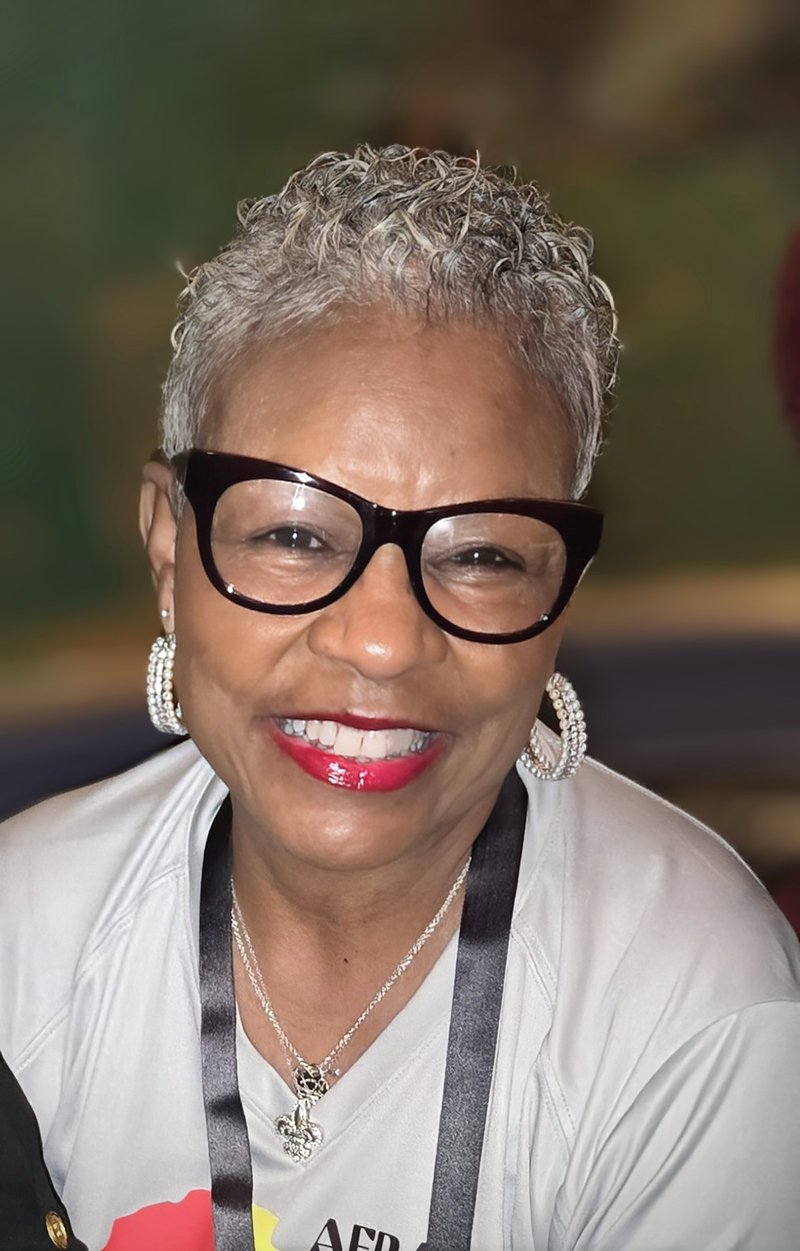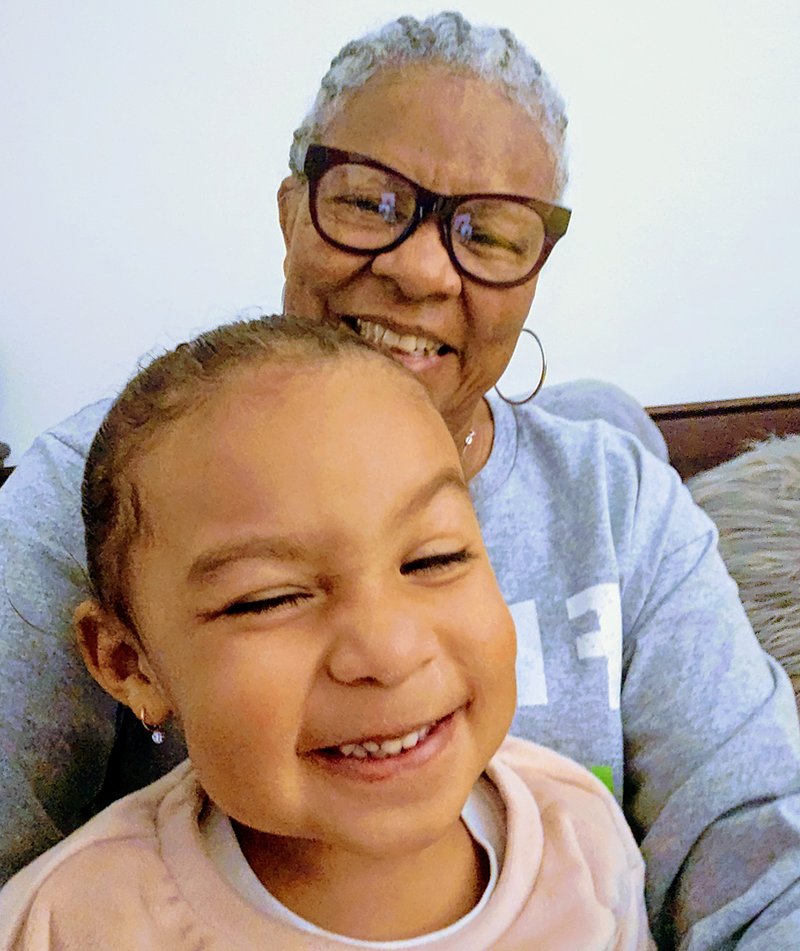As an Early Educator, I Held Up My End of the Bargain. The Wealthy Did Not.
Tonia McMillian still believes that together, we can thrive
Blog Post

Aug. 4, 2025
My country, ’tis of thee
Land of much poverty
Of thee I sing
For 30 years, I worked in a field considered essential, yet I was paid poverty wages throughout my entire work life as an early educator. I offered my services to working parents, many of whom worked jobs that paid low-income wages as well. I contracted with agencies that received government funding, though they never received enough to allocate dollars that could make a difference in the childcare workforce. But together, we managed to make ends meet. Together, we found ways to offer critical services and curriculum to children who needed us, guaranteeing a good start for them. Together, we held up our end of the bargain.

Retired early educator and poet Tonia McMillian
On the other end of the bargain, the powers that held the purse strings refused to recognize the contributions of the very workforce that had put them in positions of wealth. An end-of-year recognition certificate accompanied by a $100 gift card has never been sufficient for a person seeking opportunities to thrive financially. A 50-cent-an-hour raise is appreciated, but does it help a low-income family thrive? Most people in my circle of friends and family don’t want to be rich. We all want the same thing. We want to get our worth. We want to be appreciated and recognized as a vital part of our communities. We don’t mind the rich being rich and the wealthy staying wealthy. However, they didn’t get there on their own. There must be some reciprocity in the economic cycles in which we exist. People want a certain level of comfort with earnings that match their investments in the game.
“Families of color are at a significant disadvantage compared to White families, who have accumulated wealth over generations due to racial discrimination in employment, housing, and access to government services.”—Race Counts
No one can deny the data. The working class is the spine that holds this country together. We all know that a body without a spine is no good. The haves continue to make decisions for the have-nots while lounging on their island, seen from afar. While the have-nots continue to adhere to the direction laid out by the haves because it’s their only option, if they want to survive. Yet, one cannot make it without the other, no matter how imbalanced the dynamics may be. A mess has been made, and it will take all of us working together to arrive at a place where everyone can thrive. Workers elevate and support the wealthy, yet those very workers can never aspire to reach the heights that the affluent have. Why? Because they are all destined for their assignments, belonging to a system that has been designed to keep them in a class of their own.
Land where ancestors died
And yet we still survived
Every day, I am made very aware that I am a Black woman. Every day, I work hard with the hope that I can reach a point where I can live “comfortably” in this world. I dream that my children and their children will be able to live comfortably as well. I can remember those times when the “check engine light” would appear on my car dashboard, sparking internal fear and sending immediate stress signals throughout my body. I still shake when I think about those nights in my past when I should have been asleep, but couldn’t because I was faced with the constant decision of which bills I could pay and which bills would have to be placed on the unbreakable payment arrangement cycle that held me hostage every month. I was living in the “robbing Peter to pay Paul” reality. Forget thinking about being rich one day. I had to focus on surviving day to day. I was born into an ideology that projects limits on how far I would go in life based on my race, gender, and access to opportunities. Yet, I continue to hold a self-determination to prosper.
“The African pedagogy is a critical pedagogy that values the significance of the whole life experience—it places emphasis on and challenges discourses of power inequality with a bias towards the oppressed and marginalized in society.”—Dr. Makungu M. Akinyela, Culture, Politics, Spirituality and Practice: A Book of Resistance and Critical Theory for Disturbing Times
I know that everything I do helps the wealthy become more prosperous and maintain their wealth. That is a lesson that is never taught in a classroom. That lesson is solely taught by life.
We say that America does not have a caste system. I disagree. Our caste system is based on wealth rather than religion.
“The differences in wealth accumulation by race are the result of structural racism. Structural racism refers to the historic and current policies, programs, and institutional practices that facilitate wealth accumulation by white families while creating barriers to wealth building for or stripping wealth from families of color.”
—“Nine Charts About Wealth Inequality in America,” The Urban Institute
There is a significant favoritism for the wealthy, leaving little to no opportunity for lower- or middle-income families to attain that status. However, much like the circle of life, the “circle of wealth” cannot exist without the backbone of the working class. Unfortunately, my dreams as a Black woman, working in America, hold an expiration date or “use by” date stamped on them. I was raised to be a worker. My children were raised to be workers. And, my grandchildren and probably great-grandchildren will be raised to be workers. I dreamed that my children would be property owners and employers; however, I raised them to live in the image of who I have been in the workforce—a worker. I allowed my dreams to expire, and I feel as if I have placed a “use by” date on my children’s dreams as well.
“According to the Federal Reserve Bank, the average inheritance plus financial gifts given to a white family in 2001 was $20,685, which is enough for a down payment. That’s ten times more than the average African American legacy, which is around $2000.”—Meizhu Lui, Barbara J. Robles, and Betsy Leondar-Wright, The Color of Wealth: The Story Behind the U.S. Racial Wealth Divide
This is supposed to be the country of milk and honey. And it is. However, it is the workers who produce the milk and serve the honey, and the affluent have the advantage of enjoying them. It is unfortunate that, together, we are not privy to enjoying the fruits of our labor.
Together, we can thrive
With equity
We are in this together, but the ladder to success is missing some rungs. Together, we can build new ladders that will allow us to reach whatever heights we aspire to. There doesn’t have to be one way to the top. There shouldn’t be a single table with people waiting for an invitation. Why can’t we create a space with multiple tables, becoming an amazing banquet hall where everyone can find what they need to succeed and thrive? That’s what equity and fairness look like. I don’t know if my dreams will ever come true. But I will not give up on them just yet. Something in my spirit says we will do better. I honestly believe in the saying that President Barack Obama made popular in the Black community: “We are the change we have been waiting for.” Together, we can make change a reality. Together, we can thrive.
Let’s all together sing
Let freedom ring
